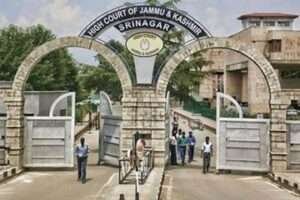Accused Entitled To Bail If Arrest Was In Breach Of Sections 41, 41A CrPC
Case: Satender Kumar Antil vs Central Bureau Of Investigation
Coram: Justices Sanjay Kishan Kaul and MM Sundresh
Case No.: MA 1849 OF 2021
Court Observation: “The investigating agencies and their officers are duty-bound to comply with the mandate of Section 41 and 41A of the Code and the directions issued in Arnesh Kumar judgment..Any dereliction on their part has to be brought to the notice of the higher authorities by the court followed by appropriate action”
“This Court has clearly interpreted Section 41(1)(b)(i) and (ii) inter alia holding that notwithstanding the existence of a reason to believe qua a police officer, the satisfaction for the need to arrest shall also be present. Thus, sub-clause (1)(b)(i) of Section 41 has to be read along with sub-clause (ii) and therefore both the elements of ‘reason to believe’ and ‘satisfaction qua an arrest’ are mandated and accordingly are to be recorded by the police officer”
“We also expect the courts to come down heavily on the officers effecting arrest without due compliance of Section 41 and Section 41A. We express our hope that the Investigating Agencies would keep in mind the law laid down in Arnesh Kumar (Supra), the discretion to be exercised on the touchstone of presumption of innocence, and the safeguards provided under Section 41, since an arrest is not mandatory. If discretion is exercised to effect such an arrest, there shall be procedural compliance. Our view is also reflected by the interpretation of the specific provision under Section 60A of the Code which warrants the officer concerned to make the arrest strictly in accordance with the Code.”
“Thus, we deem it appropriate to direct all the State Governments and the Union Territories to facilitate standing orders while taking note of the standing order issued by the Delhi Police i.e., Standing Order No. 109 of 2020, to comply with the mandate of Section 41A. We do feel that this would certainly take care of not only the unwarranted arrests, but also the clogging of bail applications before various Courts as they may not even be required for the offences up to seven years”
The Court also issued a slew of other directions as follows:
a) The Government of India may consider the introduction of a separate enactment in the nature of a Bail Act so as to streamline the grant of bails.
b) The investigating agencies and their officers are duty-bound to comply with the mandate of Section 41 and 41A of the Code and the directions issued by this Court in Arnesh Kumar (supra). Any dereliction on their part has to be brought to the notice of the higher authorities by the court.
c) The courts will have to satisfy themselves on the compliance of Section 41 and 41A of the Code. Any non-compliance would entitle the accused for grant of bail.
d) All the State Governments and the Union Territories are directed to facilitate standing orders for the procedure to be followed under Section 41 and 41A of the Code while taking note of the order of the High Court of Delhi dated 07.02.2018 in Writ Petition (C) No. 7608 of 2018 and the standing order issued by the Delhi Police i.e. Standing Order No. 109 of 2020, to comply with the mandate of Section 41A of the Code.
e) There need not be any insistence of a bail application while considering the application under Section 88, 170, 204 and 209 of the Code.
f)There needs to be a strict compliance of the mandate laid down in the judgment of this court in Siddharth(in which it was held that investigating officer need not arrest each and every accused at the time of filing chargesheet).
g) The State and Central Governments will have to comply with the directions issued by this Court from time to time with respect to constitution of special courts. The High Court in consultation with the State Governments will have to undertake an exercise on the need for the special courts. The vacancies in the position of Presiding Officers of the special courts will have to be filled up expeditiously.
h) The High Courts are directed to undertake the exercise of finding out the undertrial prisoners who are not able to comply with the bail conditions. After doing so, appropriate action will have to be taken in light of Section 440 of the Code, facilitating the release.
i) While insisting upon sureties the mandate of Section 440 of the Code has to be kept in mind.
j) An exercise will have to be done in a similar manner to comply with the mandate of Section 436A of the Code both at the district judiciary level and the High Court as earlier directed by this Court in Bhim Singh (supra), followed by appropriate orders.
k) Bail applications ought to be disposed of within a period of two weeks except if the provisions mandate otherwise, with the exception being anintervening application. Applications for anticipatory bail are expected to be disposed of within a period of six weeks with the exception of any intervening application.
l) All State Governments, Union Territories and High Courts are directed to file affidavits/ status reports within a period of four months.
Previous Posts
Licence Under Places Of Public Resort Act Is Compulsory To Run A Gym: Kerala High Court
Appeal Against Environmental Clearance Granted to Vishakapatnam Greenfield International Airport Restored By Supreme Court Before NGT Download Judgement
Keywords
Accused Entitled To Bail, Accused Entitled To Bail If Arrest Was In Breach, Accused Entitled To Bail in Breach Of Sections 41, 41A




